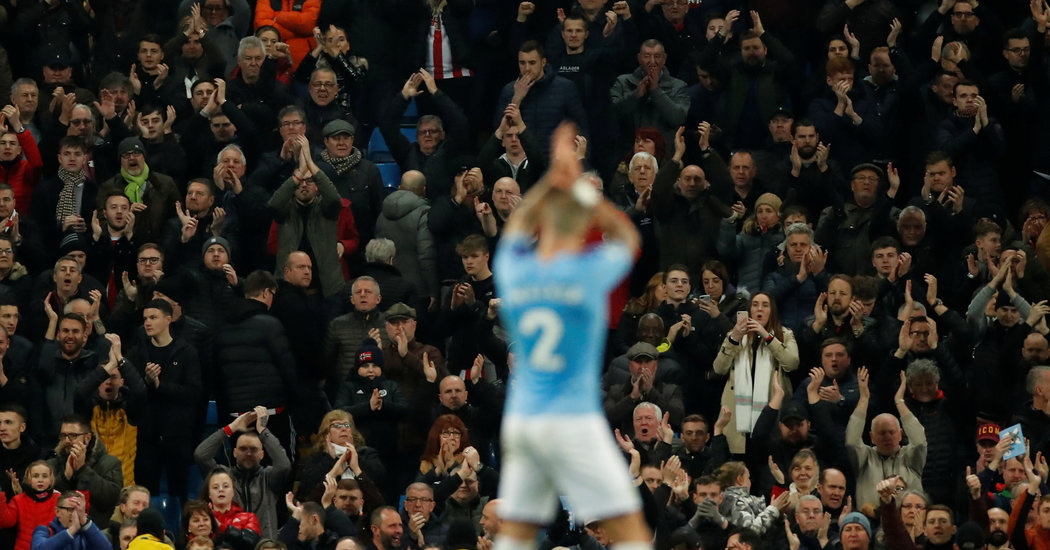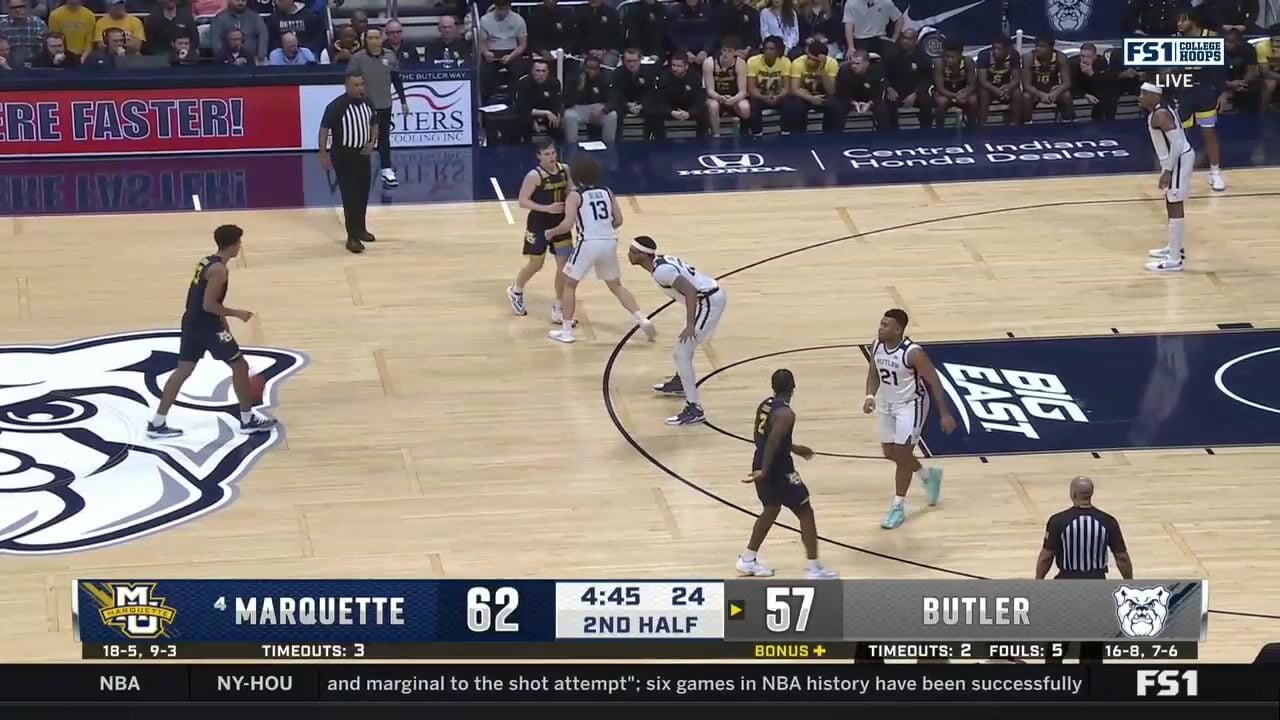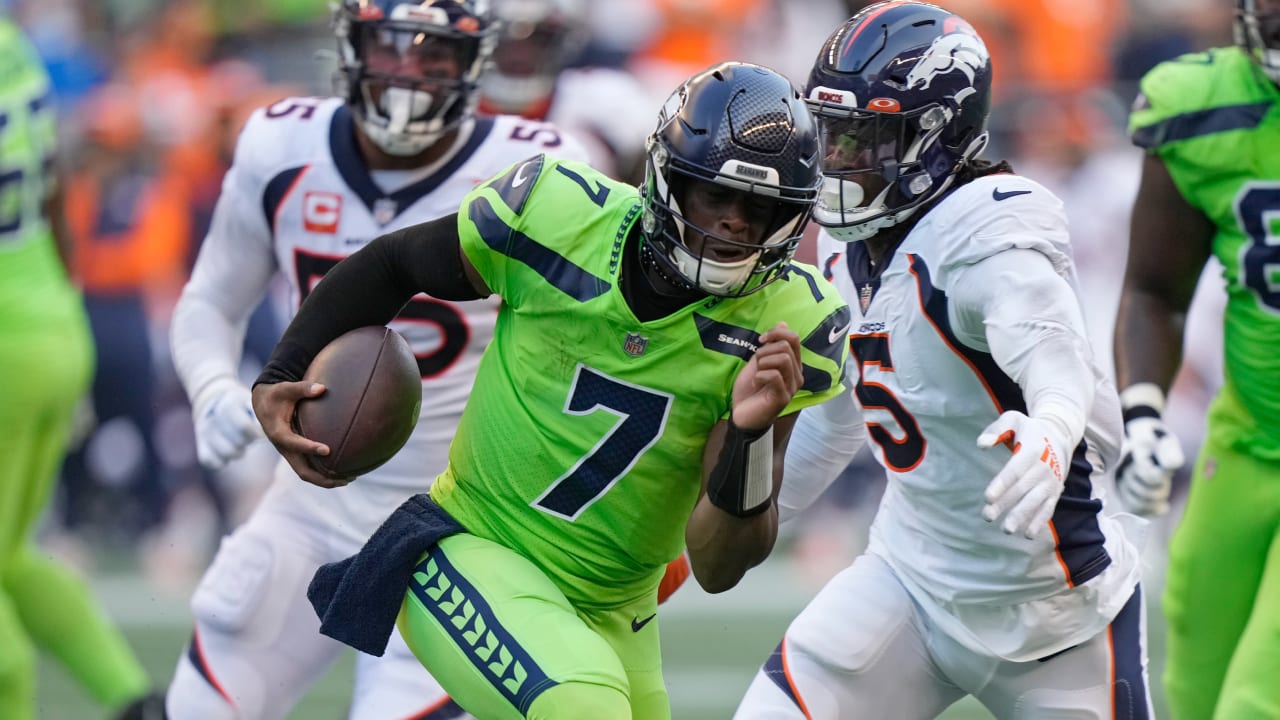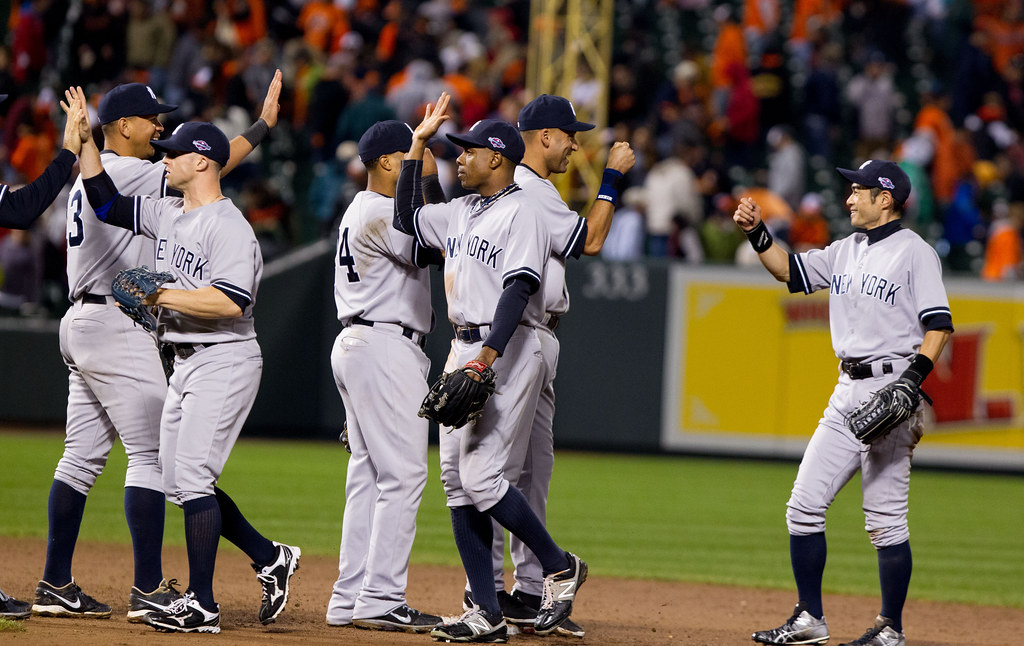
Clubs Sell Community. Now Is the Time to Pay It Back.
Sign up for Rory Smith’s weekly newsletter on world soccer (and, for the foreseeable future, quite a few other topics) at nytimes.com/rory.
Watford General Hospital is a couple of minutes’ walk, no more, from Vicarage Road, the neat, slightly frayed home of the town’s representative in the Premier League. Head out of the Graham Taylor Stand, across the parking lot, past a row of terraced houses, and you are on hospital grounds.
Vicarage Road, like almost every stadium in the world — except, strangely, the ones in Belarus — is shuttered and idle, its quietness rendering it nothing more than one of countless monuments to the general shutdown of everyday life in the coronavirus age. The hospital, by contrast, like almost every hospital in the world, is essentially on war footing. There already had been four deaths attributed to coronavirus there as of Thursday, as Britain braced for the spike and the surge.
It made perfect sense, then, that the city’s soccer club should offer use of its stadium to the city’s hospital at a time when what it needs — what all medical facilities facing the crisis need — is empty space. Vicarage Road could provide meeting rooms, host training courses, storage, child-care facilities — whatever the hospital needed. “Whatever it takes,” Watford’s chief executive, Scott Duxbury, said.
There have been countless gestures like Watford’s in the last two weeks, glimmers of kindness and empathy and care for society at large from a sport that is often — too often — accused of existing in a bubble of complacency and self-importance.
They have come from clubs; Manchester United and Manchester City joining together to donate to a local food bank; Brighton offering free tickets to health care workers once the crisis abates and soccer is resumed. Almost every team has used its social media footprint to get the message out to stay at home.
The contributions have come from players and coaches, too: Pep Guardiola, Lionel Messi, Cristiano Ronaldo and Robert Lewandowski have all donated vast sums of money to hospitals or toward research to help the fight against the virus.
There are more, many more — too many to list, really, for fear of leaving one out. Players at Borussia Mönchengladbach and Leeds United have taken voluntary pay cuts to ensure other staff members are paid. West Bromwich Albion is among a number of teams that have promised to keep paying casual staff, the sort who work at the stadium on game days, even as there are no games to work.
The response to this, of course, is that this is the least soccer can do. It is a sport, after all, that is awash with money, a sport so rich — at its highest levels, at least — that it can fritter away hundreds of millions of dollars on fees to agents, write off seven-figure salaries as bad investments, and reward (relative) mediocrity with wealth to last several lifetimes.
Latest Updates: Coronavirus Impact on Life in the U.S.
And yet sports is not the only industry in which that holds true. Phil Neville, now the manager of England’s women’s team, once observed that it was only soccer that came under pressure to help out in times of crisis; the same was never demanded of the financial sector, say, where remuneration can be no less lucrative.
In Britain, at least, there is a tendency at times to contrast how much, say, nurses or soldiers are paid compared to soccer players, rather than — for example — actors or musicians or television stars. They are all part, essentially, of the entertainment industry, but some, it seems, are judged more worthy of their wealth than others. (It should be no surprise that footballers, largely working-class, are the ones castigated).
That perspective is valid, but there is one crucial difference. Soccer — perhaps more than any other sport — sells itself, in part, on the basis of its connection to its community. Clubs do all they can to stress that they are more than just businesses, that their motives extend beyond mere capitalism, that they are simultaneously buoyant, profitable content creation enterprises and august social institutions.
All clubs try to market the idea that their location is part of their identity, and that by supporting them, you are buying in to that identity. They do so not just because, once upon a time, it was sort of true, but because that is what keeps you coming back.
It is the line that divides a customer from a fan, and a fan is a far more consistent generator of cash flow. Banks have customers. Production studios have customers. They are just businesses. Clubs are different. Clubs are more than that. Clubs have identities and meaning, thus clubs have fans.
Though they test that bond far more often than is ideal in ordinary circumstances — sky-high ticket prices, a startling lack of accountability, quite often a staggering disregard for the views of the fans — it is in moments like our current one that we expect to see the benefits of buying into the illusion.
These are the times when we expect clubs not to act like businesses, when we expect them to do more, to go further, to live up to their own billing as social institutions, as part of the fabric of a community. This is when we expect them to show that they can care for us — us in the broadest possible sense — as much as we do for them. These are the times when soccer gets a chance to prove it is not all just spin. Let’s hope it can continue to live up to its own rhetoric.
Reader Requests: Something to Read
There was, I am not afraid to say, something of an overwhelming response to last week’s request for questions you would like answered, and suggestions for what you would like to see in this newsletter: dozens of emails, and two or three times as many ideas. They were all hugely appreciated, and I’ll try to address as many of them as possible (even when soccer comes back).
But let’s start with a suggestion from Bill Hirsch, who happened to mention something I have been planning on doing for a while. “How about you and readers submitting a list of favorite soccer books that we might enjoy while so much has been put on hold, with a précis of what the book is about,” he wrote.
I\'ll start: I’m currently reading “1312,” a book by the reporter James Montague, whose work will be familiar to regular readers of The Times. James’s new book is his account of the organized fan movement across soccer — from the barras bravas in Argentina, through Europe’s ultra scene, all the way to the groups of fans who played a leading role in the Arab Spring — and it is utterly gripping. I couldn’t recommend it highly enough.
In fact, it is starting to rival “This Love Is Not For Cowards,” by Robert Andrew Powell, which is my gold standard for soccer books. Powell spent a year living in Ciudad Juárez, Mexico, looking at what was then one of the most dangerous cities in the world through the prism of its soccer team. If you enjoy my journalism, you will love Powell’s, because he’s much better at it than I am.
There also are a couple of books that are, I think, central to the general canon of soccer literature. “Football Against the Enemy,” by Simon Kuper, is the one that really kick-started the genre, and gave it a sort of literary legitimacy; I suspect it has aged reasonably well. Jonathan Wilson’s “Inverting the Pyramid” explains soccer history through the development of tactics (though, personally, I think “Behind the Curtain” is his best book).
They gave rise to a whole swath of excellent books: Ian Hawkey’s “Feet of the Chameleon,\" about soccer’s journey through Africa; if you’re interested in Brazil, try “Futebol,” by Alex Bellos; Michael Calvin’s “Family” is the best account of life inside a club I have ever encountered; “The Numbers Game,” by Chris Anderson and David Sally, offers a different, analytical perspective (and has, I think, influenced Liverpool’s success these last two years); and all of my friends and family have told me “Mister” is very good. Even the ones who haven’t read it.
There’s a few I am meaning to read, too: my colleague Jeré Longman’s “The Girls of Summer,\" about the United States women’s team’s 1999 World Cup win; Paul Brown’s “Ruhleben Football Association,” and “The Barcelona Legacy,” another of Wilson’s. But I am open to recommendations, too, if you have any.
Where We Are Right Now
It is, rightly, going to be some time before soccer has a clear road map for how and when it might restart. After all, for the first time in a long time, the game’s authorities have broadly realized the limitations of their own power. They are, as previously noted, not in control at this point. More significantly, they are aware of the limitations of their own significance.
This week has brought the start of conversations that are intricate and complex and likely to last a while; it has marked the first attempts to confront a question that does not have a correct answer. (I discussed this a bit in a Twitter thread on Friday morning.)
So far, the main conclusion is that most men’s leagues around Europe are determined to finish their current seasons. In Germany, the D.F.L. — the body that runs the Bundesliga — has said it would consider playing behind closed doors in order to reach a conclusion. In Italy, the president of the Italian federation has said he would consider extending the season into August. Both said, importantly, all of that is dependent on what is best for public health.
In a conference call on Tuesday — the first action by one of the working groups established by UEFA to try to find a solution — the continent’s leagues reiterated the desire to finish by June 30, though it is vital to note that is merely an ambition. If it is not feasible, a contingency to extend the season is under consideration.
In England, the National League — the largely semiprofessional competition below the four professional tiers — intends to wrap up its season entirely as soon as possible. It is not yet clear how that would affect promotion and relegation (teams are promoted from the National League into the Football League), but its decision may set a precedent for the rest of the country.
My position remains the same: canceling this season, or postponing it until it is safe to resume, are precisely the same on both moral and practical grounds in regards to the pandemic. One is not a more thoughtful, serious response than the other. No choices have to be made yet.
More worrying, though, is what may happen to the women’s game. In Europe, teams are largely dependent on their affiliated men’s teams for financing, and so there is mounting worry that women’s programs may be the first to be sacrificed once clubs start to feel the pinch of lost revenue. This is a story we will return to, in much more detail, very soon.
Correspondence
Let’s return, now, to the soft, warm embrace of semantics for a final dash of escapism. “I call the sport we love soccer,” wrote Alex McMillan, a British -born, American-educated Hong Kong resident. He does so because “everyone instantly knows what you are talking about. Which, after all, is the purpose of language.” Football, after all, can mean not only soccer, but “the NFL, Australian Rules Football, [the good] rugby, [the bad] rugby, Gaelic football, the list goes on.”
The brackets in that quote, I should point out, are my own. If we get really desperate for content, I’ll explain why one code of rugby is so much worse than the other.
On the subject of whether Manchester United is or Manchester United are, meanwhile, Lawrence White points out that British people “tend to talk about organizations in general in the plural; we Americans tend to use the singular in most of these situations.” This is true, in my experience.
“But why and when did this plural/singular separation take place with respect to referring to organizations? That’s something that a linguist might know.” Linguists: nobody ever asks for your help during a medical emergency on a plane. Now is your time to shine.
That’s all for this week. Keep the ideas, questions and grammatical trivia coming to askrory@nytimes.com. If you’re in the market for a podcast that isn’t about the global pandemic — and that’s OK — try this. This is the obligatory Twitter link. And tell your friends to sign up here if they need more emails during lockdown.








